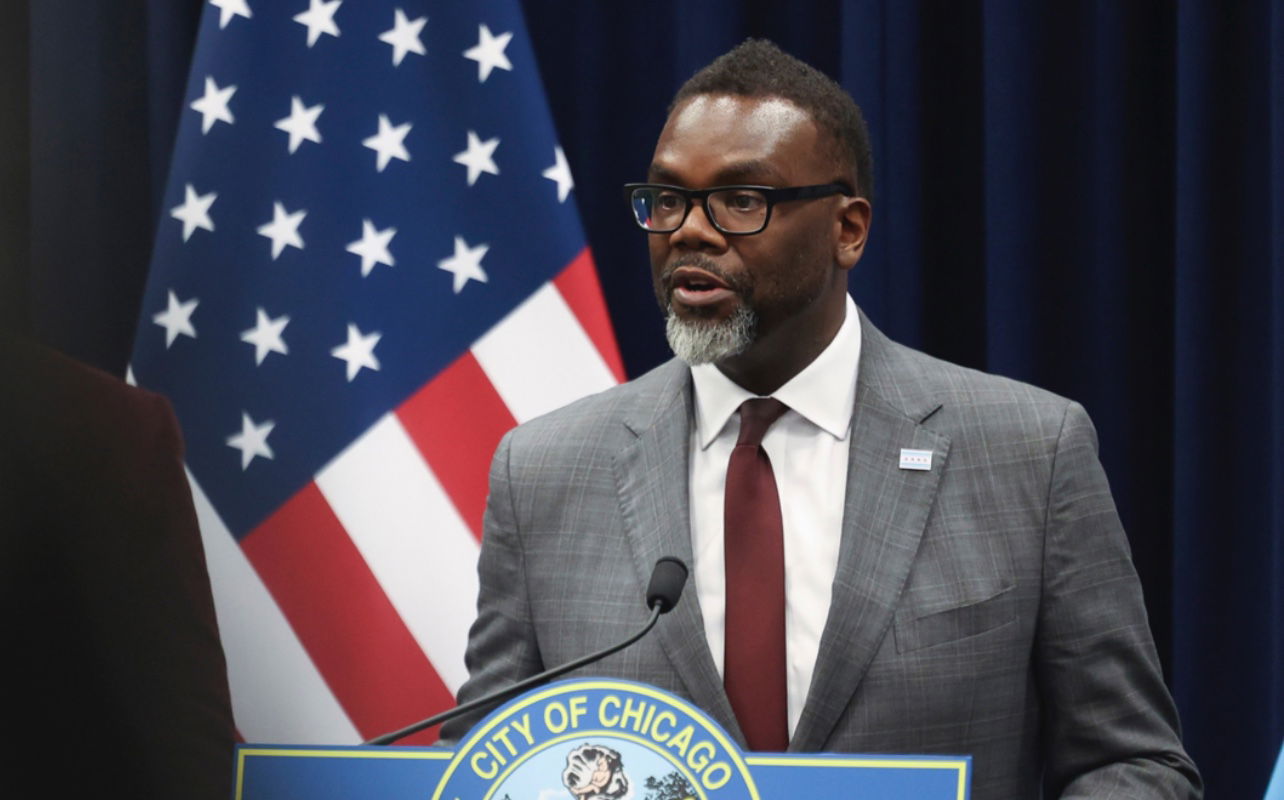
June 18, 2024
Chicago Will Explore Reparations After Mayor Johnson’s Executive Order
Although H.R. 40 is the source of the current political debate over reparations, much of the public’s awareness of the issue was shaped by Ta-Nehisi Coates’ 2014 long-form piece for The Atlantic, The Case For Reparations
Mayor Brandon Johnson signed Executive Order 2024-1 on June 17. The order acknowledges the city’s inequitable treatment of its Black residents and establishes the creation of a reparations task force that will develop a “Black Reparations Agenda” for the City of Chicago.
As WGN 9 reports, Johnson’s acknowledgment is an extension of a $500,000 allocation in the city’s budget to study reparations due to policies instituted by the city over the years. Johnson, Chicago’s fourth Black mayor, said in a statement that he and his administration want to see a targeted investment in Chicago’s Black community.
“Today’s Executive Order is not just a public declaration; it is a pledge to shape the future of our city by confronting the legacy of inequity that has plagued Chicago for far too long,” Johnson said. “We are continuing to build on the bedrock of my administration to move forward in reconciliation through targeted investments aimed at rectifying decades of deliberate disinvestment in Black neighborhoods and communities.”
Alderwoman Stephanie Coleman, who represents the 16th Ward, said in her own statement to WGN that she appreciates the commitment of the Johnson administration to Chicago’s Black citizens. “Today is a major step forward, and I am thankful to the Johnson Administration for its continued support and commitment to addressing the deep wounds inflicted by centuries of injustice against the Black community,” Coleman said. “We will not be ashamed of who we are and what we have overcome.”
Since 2021, when Evansville, Illinois, became the first city to study and implement reparations for its Black residents, several cities have followed suit. Though leading voices on reparations, such as economist William “Sandy” Darity, have long held that the federal government is ultimately responsible for any reparations issued to descendants of the enslaved in America, there has been no effort from the federal government to address the issue. This has resulted in cities like Boston, San Francisco, and Atlanta, among others, taking matters into their own hands.
Although H.R. 40 is the source of the current political debate over reparations, much of the public’s awareness of the issue was shaped by Ta-Nehisi Coates’ 2014 long-form piece for The Atlantic, The Case For Reparations. Coates traces the story of Clyde Ross, a man who lived in Chicago’s North Lawndale neighborhood for more than 50 years. Ross informed Coates that he had simply traded Mississippi’s brand of racism for a somewhat kinder, gentler racism.
“I’d come out of Mississippi where there was one mess and come up here and got in another mess…When I found myself caught up in it, I said, ‘How? I just left this mess. I just left no laws. And no regard. And then I come here and get cheated wide open.’ I would probably want to do some harm to some people, you know if I had been violent like some of us. I thought, ‘Man, I got caught up in this stuff. I can’t even take care of my kids.’ I didn’t have enough for my kids. You could fall through the cracks easy fighting these white people. And no law.”
As Executive Order 2024-1 makes clear, Ross is far from the only Chicagoan who could express those particular quarrels. As the order states: “Whereas, the institution and legacy of slavery and Jim Crow laws have created a pervasive culture that dehumanizes Black Americans and has denied Black Americans liberty, citizenship, rights, and the ability to benefit from the wealth generated from their labor; and whereas, the City has a responsibility to address the historic and present-day racial inequities by reflecting on laws, policies, and procedures, that have systemically contributed to and exacerbated racial inequalities and by identifying the appropriate remedies.”
RELATED CONTENT: What’s Next After California State Senate Passed Three Reparations Bills